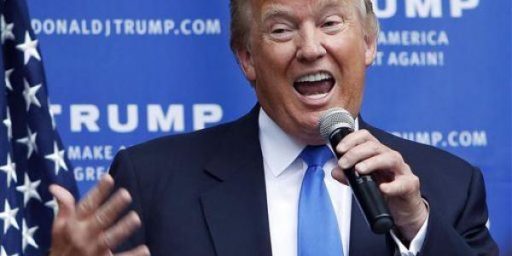Competitive Pressures and Party Behavior
Assessing Republican strategic positioning (and the incentives in our system).

In my post on fiscal policy, I discussed my perception of Republican and Democratic strategic positioning in the current Congress. I am of the opinion that the current constellation of the parties is such that Republicans, even in small numbers, are not likely to join with Democrats to do anything new and major. It is my assessment that members of the Republican Party do not see any political advantage in voting with Democrats because most of them are worried primarily about re-nomination in their respective primaries.
I have been very influenced in my thinking about the current moment by a combination of past Republican behavior combined with the vote on the recent Covid-19 relief package. The legislation passed the Senate 50-49 and the House 220-211. In case there were zero Republican votes. Why? Because the Republicans don’t want to be seen as giving the Democrats a victory. They also know that Biden is going to get the credit (or blame) for national policy no matter what they do. As such, they are, from a political power point of view, better off being able to tell their nominating electorate in the primaries back home that they opposed Biden tooth and nail (and be able to criticize him for not bringing the unity he promised). None of them want to defend a vote for socialism against some MAGAesque challenger in next years’ primary cycle.
I would note that none of what I said above is about whether the legislation was a good idea or not, nor about how Republicans might leverage votes in exchange for different contents in the package. What we are seeing here is what we would expect in a period of significant polarization. Consider: in a period of high levels of polarization, what is the political advantage of bipartisanship?
Primaries are a structural condition of our elections that I write about often, but know that the broader public fails to take into account when thinking about politics and that even regular readers do not fully account for in their political calculations about partisan behavior. And it is a reminder that members of Congress are doing individual math about their specific re-election fortunes, but also in a more collective context as it pertains to the party’s prospects. That last point is a reference to something I continually write about: that in recent times, and for the foreseeable future, every elected aspect of the federal government favors Republicans.
To repeat myself: the use of single-seat districts in a too-small House leads to rural (defined here as non-urban) over-representation. That helps Republicans. The very nature of the Senate does the same thing. The advantages in the Senate then redound to the Electoral College.
The easiest way to put this is: a shift of fewer than 50,000 votes across three states last November and Trump would have won the presidency in 2020 even whilst losing ~7 million popular votes. (This math continues to be the most easy-to-understand problem with our representative democracy and is only justifiable by hand-waving about states versus people that do not stand up to scrutiny).
If you are a Republican strategist, what are you going to focus on? Getting a handful of base voters riled up enough to vote R in 2024 or try and change the minds of millions of voters?
The new census and reapportionment of House seats shifted 3 EVs from Biden states to Trump states. This is an example of how structural conditions affect party fortunes. The Republicans did not change their platform nor their approach to politics, but they just gained a slight increase in their advantage. Indeed, they gained not one voter, but their chances of winning in 2024 increased this week. That’s not a democratic outcome.
Can Democrats try and compete harder for, say, the vote in Texas? Yes, and they should. But the entire point is that the Dems have to work harder even when we know they have more voters nationally than do the Reps. This is not how competition is supposed to work. The foundational notion of the importance of competition is that while the winner has to keep on doing its best to keep winning, the loser has to improve in some way to get better to win. When a party can increase its chances of winning without having to improve itself in some way, well that is shall we say suboptimal (and yes, read that sentence as an attempt at comedic understatement).
I think most readers of this site, and plenty of people elsewhere, understand all of this, but it is nonetheless easy to fall into assuming that, in fact, politics is about national sentiment and not the collection of a lot of local sentiments that are structurally divided in ways that makes all those contests not reflections of national views, but of very much local ones (although with national partisan identification reinforcing all of it).
Another part of this puzzle is to remember that most people, when it comes to voting, end up voting based on party. They do not sit down each election and re-assess, based on logic, policy, and performance, the two parties let alone each individual candidate.
And yes, over time things can shift in a location (as happened in Georgia in 2020 and early 2021, which may or may not have long-term implications),* but the bottom line remains that people, in the aggregate, tend to vote the same party election-on-election and allow their partisan identities to guide what they think about issues far more than the other way around.
All of that was prelude (Dear God, did he just say “prelude”?!) to the following comment by Scott F. on the post I linked above:
Though all the incentives favor obstruction in order to placate the base, the loss of the Senate and WH in 2020 showed the base won’t be enough to hold power. The Republicans are going to eventually have to DO something for the tribalist and country club Republicans or I can’t see them continuing to vote GOP. They won’t switch parties, but they could start to not participate if there’s nothing in it for them. The scaremongering about radicals and socialists isn’t going to convince any right-center folks in the midst of a strong economy that their way of life is at stake.
Now, I think that there may be some truth in all of this, and I am not here picking on Scott, but it spawned several thoughts that I started to comment on, but then blossomed into this lengthy post. The broadest one is that I think it assumes, as many do, that national success and failure directly influences local races more than is likely the case.
But, specifically, let me address a couple of items.
First, “the loss of the Senate and WH in 2020 showed the base won’t be enough to hold power.”
I do not think that the lesson the national GOP learned in 2020 was that they need to expand their appeal (just look at Leader McCarthy’s response to MTG and his spinning of 1/6, the criticisms that Liz Cheney is facing, and the close vote on censure of Mitt Romney in Utah). This is not a party looking to expand their appeal, quite the opposite.
Now, at first blush you might say: then they are doomed since, you know, there are empirically more Democratic voters than Republican ones. And maybe, at some point, this approach will doom them. But, 2020 did not teach them a lesson of expansions. The more rational in the party can blame the overall outcomes on the pandemic and the economic downturn. The more delusional will convince themselves that yes, the election was stolen and ride the “election integrity” legislative train at the state level to simply make voting harder to forestall marginal Democratic gains. They surely aren’t going to try and be more inclusive.
Consider: the GOP could have still won the presidency while losing the popular vote by a wide margin, they lost fewer House seats than predicted and are in a good position to make gains in 2022, and they lost the Senate in two razor-thin elections. In other words, Republicans are not going to look at 2020 and say “we have to change, look at what we lost!” They are going to look at 2020 and say “look how close we were to winning!”
And with the new census figures helping them out, coupled with control of a good number of state legislatures meaning control of redistricting (plus “voter integrity” laws) and really, Republicans have every reason to be optimistic about 2022. They certainly have no incentive to cooperate with Biden in this Congress.
Second, “The Republicans are going to eventually have to DO something for the tribalist and country club Republicans or I can’t see them continuing to vote GOP.”
Well, first and foremost, being a tribalist means tribe matters more than anything else. Again (and I know a lot of people here balk at this for reasons I still have not fully worked out): the main variable that predicts one’s vote election-on-election is one’s previous vote. People don’t change tribe easily. Further, they are really terrible at understanding who to blame and who to give credit to as it pertains to the government. People are also more likely to give their tribe a pass and to blame the other tribe for their own tribe’s failings.
As it pertains to doing something, I would note that the most fundamental element of conservative politics is that the current arrangement of power, status, and wealth is basically the just result of the test of time. As such, change is bad and so not doing something is kind of their thing.
Lastly, on this point, country club Republicans got their tax cut two years ago (and their judges), and many like the notion of keeping the non-country club members well, out of the club (think BLM, immigration, and trans rights for example).
All of this is to say: never, ever, ever forget that the most important way to understand American politics is not a national assessment of policy outcomes. It is not about what voters as a whole want. It is, rather, how the lines on the map dictate the relative power of what sub-national groups want as filtered through only two viable choices.
Where voters live dictate their political significance more than what voters want.
State lines matter for both Senate (especially) and House, as well as the EC.
District lines matter at the House level.
The shape of those containers has more to do with political outcomes (and, to the point of this post, politician and therefore party behavior) than want Americans, taken as a whole, actually want.
I think in some ways this is the key point I have been trying to make in various ways about what the fundamental problem is with American democracy. Our system simply does not generate the incentives for politicians to maximize the number of voters that they please (even in their own states and districts because of primaries). Instead, they incentivize appealing to primary voters, who are far smaller slices of the electorate than we find in the general election and who are frequently ideologically skewed vis-a-vis even their fellow citizens in the districts and states wherein they reside.
Keep in mind, I am not denigrating the notion of location-based representatives in a national legislature and I agree that there are localized interests that need to be elevated to national politics. But, even allowing for that, the goal of national politics should be to reflect national needs, not to be subservient to lines on a map (and especially to nominating contests).
The bottomest of bottom lines: the incentives in our system structurally favor the Republicans, so don’t expect them to try and broaden their appeal until that advantage no longer exists. And that members of Congress, in general, are incentivized to worry more about primary electorates than the general electorate in most elections.
PS: All of the above is what I was getting at in the Carville/woke discussion thread before that conversation got side-tracked. The Democrats aren’t going to lose seats in 2022 because they were too “woke” or use “faculty lounge words.” They are poised to lose seats in 2022 because of structural conditions noted above–conditions made slightly worse in the House because of the census and our unwillingness to expand the size of the House, despite 435 having been in place since we had ~92 million residents. (Also, something I don’t mention enough, the usage of two-year terms is part of the problem, but I will leave that for another day).
In other words: existing partisan identification, and how voters are geographically located, have a whole lot more to do with electoral outcomes than messaging debates or even legislative outcomes.
And I argue for reform because we should want a representative democracy that incentivizes the national legislature to do what the national population wants and is rewarded or punished based on how well that is accomplished. We currently do not have such a system.
*I would note that I don’t think we know how much of 2020/2021 in Georgia was about long-term partisans flipping their vote, how much was about very targeted voter-turnout actions, and how much is just demography (e.g., increased urban populations, the relative growth of key groups, etc). Time will tell, but my hypothesis would be that the main issue was not a bunch of party-switchers, although I am sure that the nature of the Trump presidency led to some of those as well).






Is this true though? Part of the problem is that the most Republicans don’t actually want anything from the federal government, so merely obstructing everything is enough to keep most of them happy.
This article captures it well:
Red Bull, Elon Musk, and Matt Gaetz
@Stormy Dragon:
This also connects to the “if we eliminate the filibuster, what happens when the Republicans are in charge?” hand-wringing. Well the only thing the Republicans want are judges and tax cuts, both of which are already free from the filibuster, so they pretty much already have eliminated it for when they’re in power.
While I agree ‘the base won’t be enough’ wasn’t the lesson the national GOP learned from 2020 results, it is the lesson they should have learned and while it’s difficult sometimes grasping institution-wide stupidity, it happens and it is happening right now with the national GOP. This is not in any way meant to defend an assumption ‘that national success and failure directly influences local races more than is likely the case.’ I agree that this is a faulty assumption, it’s just not my assumption.
To wit, you state…
…to which I reply Amen. Our current system will continue to fail those of us who want representative democracy. There is simply no way for it not to fail us. Demographic and cultural trends favor liberal democracy, but they just won’t be enough to overcome the structural dysfunction.
And if reform is prerequisite to representative democracy, then the pertinent question becomes what will be the ultimate catalyst for reform. And I’ve come to believe that there is nothing catalytic available to the Democratic Party. Dems will continue to call for reform, but they will be shouting into the wind and nothing will come of their calls. The obstacles to reform are all in the Republican Party and only Republicans can get their own house in order. Some critical mass of Republicans are going to have to realize that some temporal loss of power will have to accepted in order to get to a place where the right has some say in policy outcomes beyond obstruction (and maybe tax cuts for the rich).
What I keep coming back to is my experience with you, Steven, and with James. I’ve been reading OTB for a very long time and I’ve witnessed the two of you shift from fairly loyal Republicans to GOP naysayers. If two conservative thinkers of your caliber can be driven to disassociate yourselves from Republicanism, then there is a line to be crossed for some partisans. I thought the line drawn by Trumpism would have disaffected more than it did, but I was wrong. Republicans could have stepped back from the abyss, but (as you’ve recognized) the lesson the GOP has chosen to learn from the Trump experience is to double down. I contend this will disassociate more. If Trump re-emerges, or if DeSantis or Hawley pick up the mantle, the line keeps getting moved down and more of the center-left will find themselves on the wrong side even in local and state elections.
I wish someone other than the Republicans had agency for reform, but sadly that is not where we are. So, I find myself pulling for GOP self-immolation. The Republicans need a burning platform before they will do what only they can do.
Judges and tax cuts may be all the Republicans want now, but isn’t this bound to change with time? Taxes are already low and there are definite limits to what can be accomplished in policy terms by the courts alone. If Biden and the Democrats deliver to their constituents even some of what they are attempting with the American Rescue Plan and the American Jobs Plan, wouldn’t you think it will eventually dawn on GOP constituents that they aren’t getting anything they’ve been promised? Owning the libs won’t sustain them forever.
@Scott F.:
There clearly has been movement in both directions: a lot of traditionally Republican voters have started voting Dem, but the reverse has happened as well. This isn’t purely a Trump phenomenon: it’s something that’s been going on gradually for decades, and Obama’s election was a big catalyst, though I think the extent of it was temporarily stalled by the Great Recession. I’m not sure which party has received more “converts” in the past few cycles (it’s probably roughly even), but converts to the GOP seem to be disproportionately in electorally important areas–so far.
@Stormy Dragon: @Scott F.: I would add a couple of things: (1) You’re both forgetting about deregulation, a key policy priority for the GOP; it’s just that they know how to accomplish it through executive action, without the need for legislation (2) I think if they had their way, they’d slash the social safety net as they have often tried to legislatively, it’s just that it’s politically harder for them than tax cuts for the rich, which the public doesn’t care for but doesn’t feel like they’re being directly attacked the way they do when it comes to reductions in social programs.
@Scott F.:
That’s what kicking transgender kids is for.
@Scott F.: I see a lot of discussion among conservatives about the Republican Party becoming “populist”. Trumpistas believe it already is, taking pandering to popular prejudices to be populism. Others talk of the Party supporting economic populism, supporting SS and Medicare and health care, like Trump talked about and many GOPs actually believe he did. Real populism seems possible, but it would run counter to Charles Koch’s interests and probably can’t happen unless GOPs are willing to kiss off Koch et al money. Reformicons have talked for decades about Republicans being the party that supports “working people”. Ain’t happened yet.
@Scott F.:
I would go a few steps further and note that Democrats only want some reform–and really not all that much because they risk losing power. If the Dems really wanted change, they would expand the House and shift its election to either multi-seat district RCV (i.e., STV) or to open-list PR. This would utterly upend everything, and while still not fix everything, would substantially alter the party system (which would affect Dems as well as Reps). This could all be done with the votes they have in both chambers if they got rid of the filibuster.
People can change their minds, to be sure, but an en masse shift is unlikely.
@Scott F.: Over time I don’t think what the Reps are doing is sustainable. They will, at some point, just be unable to win the White House. But I am not sure how far off that is.
If Texas ever goes blue without some other major shift, look how fast the Reps will want EC reform (and watch a lot of Dems change their tune as well).
@Steven L. Taylor:
This is where I am as well. Which is why I, sitting here in California, have contributed (and will continue to contribute) to Democratic get out the vote efforts in the Lone Star State. Electoral recalibration may be many years away, but it will run through Texas.
@Scott F.:
The underlying issue here is that James and Steven have different goals from the people who actually drive the GOP. Our hosts are intellectuals. The prominent ‘public intellectuals’ are completely different. Some of them are able to maintain their fairness and erudition. But since at least the 90s, those two attributes likely hurt their brand and earning power. Most of them have a significant financial stake in not being intellectual beyond mere trappings.
For that reason, I think it’s a pretty good bet that people like David Frum are probably read more by Democrats than Republicans.
@Scott F.:
The catalyst is going to be that at some point, the states are just going to start ignoring the federal government, and a minority controlled federal government is going to be unable to do anything about it. We’re already starting to see this on immigration policy and gun policy.
@Steven L. Taylor: I think you have the right of it. I also think that people change slowly and not en masse, but they do change. For instance, James’ post about Andrew Sullivan, and Sully’s “lowered temperature” on debt.
I also think that the long-term demographic trends are breaking against the R’s pretty hard, and they know it, and are acting like people who feel that they could lose their grip on most everything. Which is probably true. The remarkable thing is that they aren’t trying to adapt to the new situation, or negotiate a soft landing.
@Stormy Dragon: Eliminating the SALT deduction to Federal Income Tax makes what you propose a lot harder when it comes to things that cost money.
@Steven L. Taylor:
Well, expanding the House is obviously allowed, but is multi-seat district RCV or PR permitted by the Constitution? I wouldn’t have thought so, but I’m not a scholar.
The issue of change is very important to me – personally and professionally. There’s a lot of discussion in this post (and others) about the changes that Steven and James have made over the years. This is, of course, appropriate given they’re the hosts.
Their changes are widely celebrated here, which is expected given that these changes have mostly been from more conservative to more progressive (or less conservative), and the commentariat is more on the progressive side. So it’s mostly a celebration of change.
I suspect that in many (most?) other areas of their lives, such changes have not been celebrated. In fact, I suspect that they likely came with a fair amount of social cost. This speaks highly of the character and intellect of our hosts (tip of the hat to you both).
A few OTB commenters have written about their own political changes over the years. From what I can tell, all of these testimonies have been some flavor of “I used to believe this terrible (ie, conservative/libertarian) thing, but I’ve since seen the light and have come to Team Goodness.”
That is all well and good – I do not, for one moment, question the legitimacy or sincerity of such conversions. I am, however, more interested in changes that have come with a social cost. And by “social” I mean here in this OTB community (I realize that such costs have been borne outside of here IRL).
In short, have any of the regulars (or irregulars) changed from a previously-held progressive position to a less progressive (dare I say, conservative/libertarian) position that they currently hold?
Bonus points for changes that are likely to incur the wrath of card-carrying members of Team Goodness.
@Stormy Dragon: Note, of course, that states are only “Laboratories of Democracy” when they implement Republican policies. When they implement policies that actually benefit their populations over business interests – excuse me, Democratic policies – then they’re rogue socialist hellholes that must be stopped both using uniformed military force and ignoring The Law.
Of course, it’s also fun to note that the posse comitatus act was passed explicitly to end the use of the military to enforce equal rights for black citizens in the conquered South. Because, you know, the South promised they’d treat Those People equally, and as we know everything has worked out just great since then.
@Gavin: Those who invoke the “laboratories of democracy” analogy never seem to follow it to its logical conclusion. Laboratories imply things are being tested for their efficacy, which means you figure out which approaches work best so that you can then implement them outside the laboratory–which in this case would mean federally, no? Yet this phrase is almost always used to argue that policies should remain at the state level forever and eternally.
@Kylopod:
What you go on to say is one conclusion. And it’s logical. But it’s not THE logical conclusion. Indeed, I suspect many who invoke this would say that once you “figure out which approaches work best,” then other states can make policy changes on their own accord (or not). There’s no need for federal mandates. That doesn’t strike me as illogical or contradictory.
@Mimai: The whole concept of a laboratory is that it’s a place where you experiment to figure out which solutions work best, and then you apply those solutions to the outside world. If the argument is that the policies should remain at the state level forever, then by definition the states can’t be called laboratories. The whole point of a laboratory is preparing to implement things outside the laboratory.
@Kylopod: I think we’re missing each other on how we define “outside the laboratory.” Let’s say that Ohio tests a new social policy X. The test is positive in that the policy results in the desired outcome. Kentucky could then look at Ohio and say, hey, we should implement that policy.
To me, that is implementing things “outside the laboratory” and in a way that is consistent with federalism. Is this not what Rs mean (or pretend to mean) when they invoke the laboratories analogy?
You seem to assume they mean that the federal government will look at Ohio results and say, hey, we should implement that policy in every single state. I don’t think that is what Rs mean, nor do I think that is legally possible in our system.
@Mimai:
So if something works in one laboratory, our reaction should be to use it in another laboratory? That’s simply not what a laboratory is for, by definition.
You may think I’m nitpicking with the analogy, except it isn’t a nitpick: the entire analogy makes no sense. People use the phrase “laboratories of democracy” because it sounds good and carries connotations of innovation and progress, yet what they’re arguing isn’t what laboratories actually are: “My state has different needs than yours, and there isn’t a one-size-fits-all policy for everywhere” may be one argument for federalism, but it doesn’t fit the “laboratory” conception–yet that’s almost always what people who invoke the phrase end up arguing.
I doubt Xi Jinping reads this excellent blog. But if he did, this post would probably cause him to roll his eyes at the professed virtues of ‘representative democracy’ that Americans love to proclaim.
I’m afraid that in my dotage, I’m tending to side with the Chinese.
@Kylopod: There it is. The source of our “disagreement.” I don’t think you’re nitpicking at all. Rather, we have different conceptions of laboratory. Yours is more restricted, similar to a wet lab and/or bench science version of a laboratory. Mine is more expansive, similar to a clinical effectiveness trial and/or community based participatory research version of a laboratory.
Now none of this is to disregard the problematic nature of how people “use” the phrase. Partisans demagogue and obfuscate because that’s what partisans do. Others simply don’t understand the analogy (much less “laboratory” or science for that matter) but think it sounds good. My point is that the analogy can be used in an internally consistent and logical way.
That observation and prediction by David Frum keeps coming to mind:
“If conservatives become convinced that they cannot win democratically, they will not abandon conservatism. They will reject democracy.”